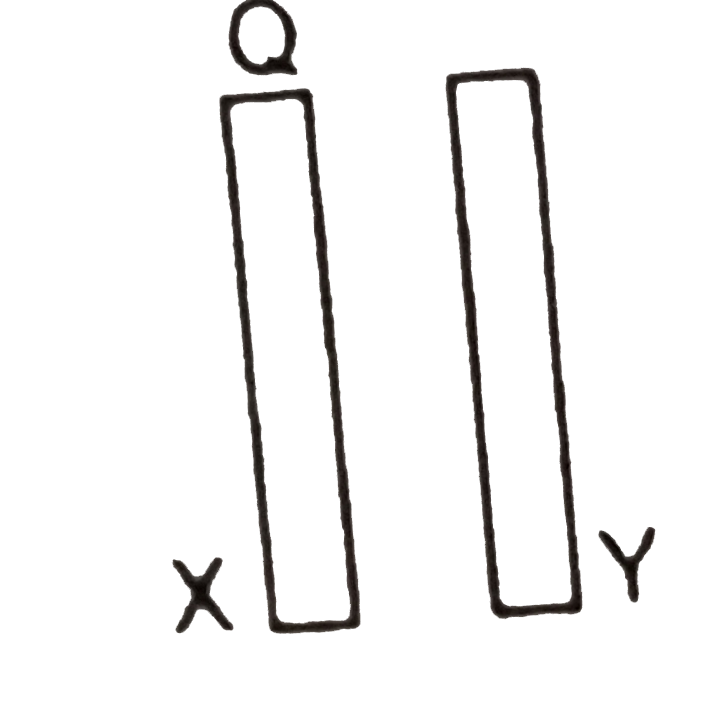The Electric field at a point is
always continuous
continuous if there is no charge at that point
discontinuous if there is a charge at that point
both (b) and ( c) are correct
The correct Answer is:D
Electric field at a point is continuous if there is no charge at that point. And the field is discontinuous if there is charge at that point. So both options (b) and ( c) are correct.
Topper's Solved these Questions
- ELECTRIC CHARGES AND FIELDSBook:NCERT FINGERTIPSChapter:ELECTRIC CHARGES AND FIELDSExercise:MCQs
Explore 2 Videos
- ELECTRIC CHARGES AND FIELDSBook:NCERT FINGERTIPSChapter:ELECTRIC CHARGES AND FIELDSExercise:Electric Field Lines
Explore 12 Videos
- ELECTRIC CHARGES AND FIELDSBook:NCERT FINGERTIPSChapter:ELECTRIC CHARGES AND FIELDSExercise:Force Between Multiple Charges
Explore 5 Videos
- DUAL NATURE OF RADIATION AND MATTER Book:NCERT FINGERTIPSChapter:DUAL NATURE OF RADIATION AND MATTER Exercise:Assertion And Reason
Explore 15 Videos
- ELECTROMAGNETIC INDUCTIONBook:NCERT FINGERTIPSChapter:ELECTROMAGNETIC INDUCTIONExercise:Assertion And Reason
Explore 15 Videos
Similar Questions
Knowledge Check
The electric field at a point in space in equal in magnitude to the
AElectric charge thereBForce a proton will experience thereCForce a unit charge would experience thereDForce an electron would experience thereThe electric field at a point on equatorial of a dipole and direction of the dipole moment
AWill be parallelBWill be in opposite directionCWill be perpendicularDAre not relatedThe electric potential at any point x,yanz in metres is given by V=3x2. The electric field at a point (2,0,1) is
A12 Vm−1B−6 Vm−1C6 Vm−1D−12 Vm−1
Two conducting plates X and Y, having large surface area A (on one side), are placed parallel to each other as shown in figure. The plate X is given a charge Q whereas the other is neutral. Find :
(a) The surface charge density at the inner surface of the plate X,
(b) The electric field at a point to the left of the plates,
(c) The electric field at a point in between the plates and
(d) The electric field at a point to the right of the plates.

View SolutionA charge Q is uniformly distributed over a large plastic plate. The electric field at a point P close to the centre of the plate is 10Vm−1. If the plastic plate is replaced by a copper plate of the same geometrical dimension and carryin the same charge Q1 the electric field at the point P will become
View SolutionA hemisphere is uniformly charged positively. The electric field at a point on a diameter away from the centre is directed.
View SolutionA hemispherical shell is uniformly charge positively .the electric field at point on a diameter away from the centre is directed
View SolutionThe strength of electric field at a point is represented by a scalar, called as
View Solution

